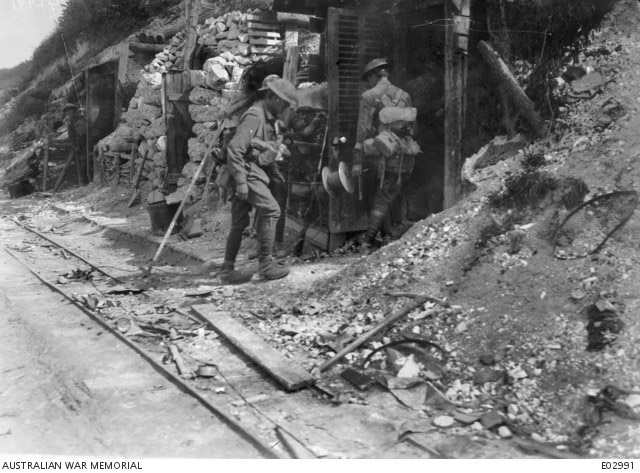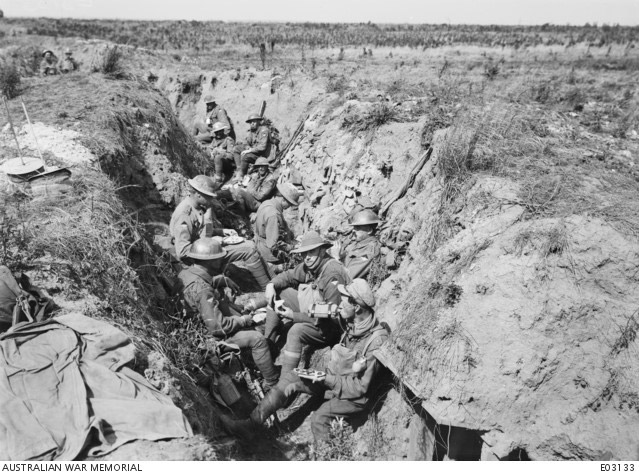1916: Australia joins the campaign on the Western Front
By Major Ross Eastgate OAM, member of the Queensland Advisory Committee for the Commemoration of the Anzac Centenary.
By December 1915 Australians were stunned into a deep sense of grief tinged with a perverse sense of pride. They had allowed their young men to volunteer for war - no one made them go - but families and communities began to suffer as the casualty lists grew and news arrived ever so slowly from the battlefields on Gallipoli.
As the first casualties, many grievously wounded, began to return home, the reality of war hit Australians in a personal way. Gallipoli cost 8141 Australian lives with 26,111 casualties in total.
Every community was affected though none could anticipate as 1916 dawned that by year’s end those figures would be overtaken in two battles at Fromelles and Pozieres. Almost 2000 men were killed or died of wounds in a single day at Fromelles on 19 July 2016.
A century later that battlefield is still giving up its dead and modern science is giving them back their identities.
If that wasn’t enough grief, over 42 days from 23 July 2016 another 23,000 Australians became casualties at Pozieres, 6,741 of them killed.
In the first five days the 1st Division, including Queensland’s 9th Battalion had suffered some 5,285 casualties.
Official historian Charles Bean later wrote Pozieres “is more densely sown with Australian sacrifice than any other place on earth.”
Among the fallen was Queenslander Major Duncan Chapman of the 45th Battalion who, as a lieutenant had led the 9th Battalion ashore at Gallipoli, being amongst the first men to land.
Yet before these battles even commenced, Australians had paused to commemorate and remember the men of Gallipoli and their deeds which had so energised the nation’s spirit despite the cost. There were no solemn public parades or services in 1917 to remember the fallen at Fromelles and Pozieres nor in the years following.
Gallipoli and more specifically the landing are the events that have permanently stirred Australia’s conscience about sacrifice and loss. Recently Australians paused as 33 remains were repatriated from wars 50 years ago.
At Fromelles names are being given to remains lost for a century. Even without a known grave, every casualty had a name and for their surviving families has a name.
While we do not need to pause on every anniversary of every battle, we should ensure their names remain known, their deeds remembered. The Anzac Centenary allows us the opportunity to recall all the battles and all those who fell.
Lest we forget.

Members of the Queensland 9th Battalion

Members of the Queensland 25th Battalion
Photos: Australian War Memorial








